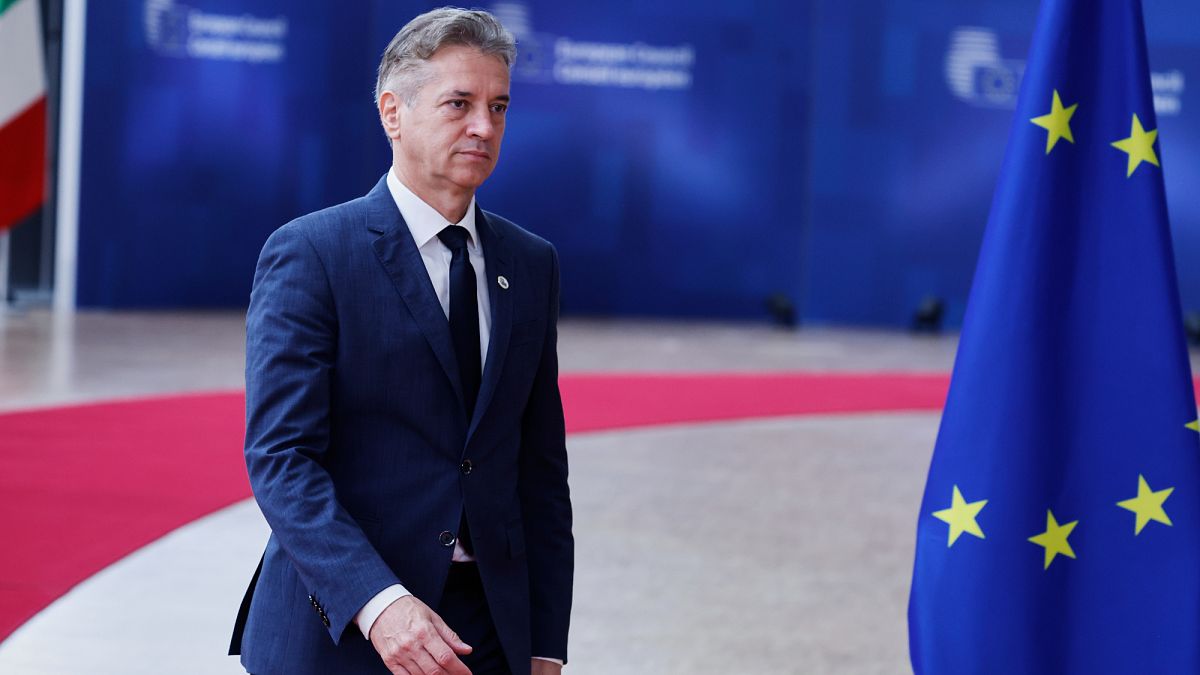

In an evolving landscape of political and social dynamics across Europe, several noteworthy updates are reflecting a diverse array of changes and movements. Slovenia, a country known for its bold international stances, has taken a pioneering step in the European Union by becoming the first EU member state to impose a ban on weapons trade with Israel. This action underscores Slovenia’s consistent call for increased diplomatic engagements and humanitarian actions concerning the Israeli-Palestinian conflict. Elsewhere in the continent, Hungary faces a different set of challenges as police interrogate Budapest’s Mayor over his involvement in a recent, albeit banned, LGBTQ+ Pride march. Meanwhile, in London, diverse groups of protesters gathered outside a hotel serving as temporary accommodation for asylum seekers, demonstrating the ongoing dialogue around migration and societal integration within the UK.
Slovenia’s decision to cease arms trade with Israel marks a significant shift in European foreign policy. With a history of humanitarian advocacy evidenced by its recognition of the Palestinian state in mid-2024, Slovenia has been vocal about its perspectives on peace and stability in the Middle East. The ban on arms trade with Israel is an extension of Slovenia’s efforts to foster dialogue and encourage a ceasefire in sensitive regions like Gaza. This legislative move can be seen as a reflection of Slovenia’s broader commitment to international peace and humanitarian aid, characterized by its recent call for increased aid deliveries to the Gaza Strip. The nation’s actions resonate with elements of diplomacy aimed at balancing international relations and addressing human rights concerns.
Switching focus to Hungary, the situation underscores the complex interplay between civic freedoms and governmental oversight. The questioning of Budapest’s Mayor by Hungarian police highlights the tension surrounding the LGBTQ+ community within the nation. Prime Minister Viktor Orbán’s government, known for its conservative stance, has publicly positioned itself against LGBTQ+ Pride events, framing them as threats to what it describes as the moral and spiritual development of children. This perspective forms part of a broader narrative in which cultural and traditional values are often weighed against evolving social norms and the rights of minority communities. The interaction between local government figures and national policies underlines the challenges faced by advocates seeking to promote LGBTQ+ visibility and rights within Hungary.
In the UK, the societal debate on migration remains vibrant, as seen in the vicinity of a London hotel housing asylum seekers. Demonstrators advocating for anti-racism gathered to oppose a group against the use of the hotel as a Home Office accommodation site. This peaceful assembly illustrated the active role of civil society in addressing contemporary issues of asylum and integration. The Thistle City Barbican hotel in Islington became a focal point for discussions on migration and inclusivity. Here, the prevailing sentiment called for compassion and understanding for those forced to leave their homelands in search of safety and stability. The turnout of protesters and counter-protesters also highlights the enduring challenges and dialogues around accommodating and integrating diverse populations into existing communal structures.
These diverse issues coming out of Europe, each with its own historical and socio-political context, play a crucial role in shaping the continent’s future path. They reflect broader trends of activism, policy-making, and the social discourse necessary for incremental change, often inspired by deep-seated cultural and ethical convictions. As Slovenia, Hungary, and the UK explore these dynamic issues through different angles, they set the stage for future dialogues within their respective borders and the European Union at large. Building bridges for peace, recognizing cultural identities, and understanding the diverse needs of migrant populations are recurring themes in the ongoing dialogue for a harmonious coexistence in Europe’s rich tapestry of nations.
Thus, as Europe navigates its way through these complexities, the mindful conversations and legislative actions witnessed across Slovenia, Hungary, and the UK serve as a testament to the continent’s continued journey towards a balanced synthesis of tradition, human rights, and migrant integration.
Source: {link}
